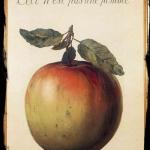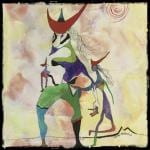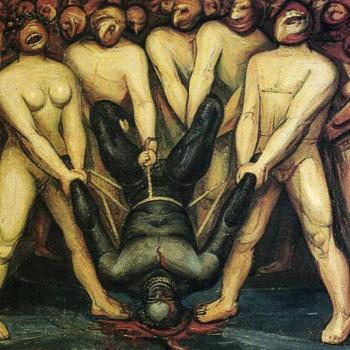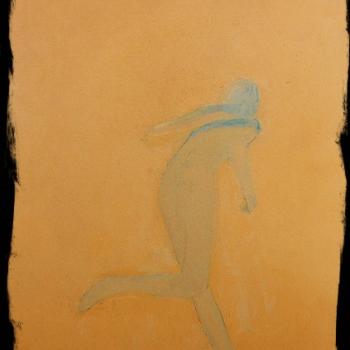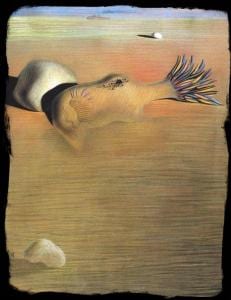
I just read the Patheos post by Catholic apologist Dave Armstrong, entitled Masturbation: Thoughts on Why it is as Wrong as it Ever Was. Which I initially thought might be a joke. But it is not.
At the end of Armstrong’s essay, you’ll see a long list of citations for other articles on the sin of self-pleasuring, which encompasses both the prohibitions on masturbation and on contraception. The canonical statement on the origins of these prohibitions is of course, Genesis 38:9-10, wherein Onan “went in to his brother’s wife [and] he spilled the semen on the ground, lest he should give offspring to his brother.” Wherein a much-displeased Lord “slew him also.”
Amidst all of this spilling and slewing, exciting though it may be, the retelling of the Onan story in the Armstrong masturbation essay makes clear the enduring sexual obsessions of the 21st-century traditionalist Catholics who have (weirdly) so endeared themselves to the sexually heathen Donald Trump (who presumably spills his own misbegotten seed with lusty abandon). These obessions speak to the emphasis of my own recent essay on the structure and logic of Catholic natural law moral philosophy, with its focus on organizing social and spiritual order around that which is “natural.” Which logically displaces any behavior that violates the naturalistic prinicples as deviant, alien, and evil.
Here is how Dave Armstrong characterizes this naturalistic prohibition on sexually deviant behavior. “The bottom line is this: some things are wrong in the nature of things, and contrary to God’s will. This is how we view masturbation and contraception and sodomy and fornication and any other grave sin. We arrive at these judgments based on revelation, Christian tradition, human experience, sociological and scientific and anthropological data, philosophizing, etc. And we know things from natural law and moral intuition and instinct, and how we feel after we do them (a little phenomenon called “guilt” that our society comprehends less and less these days).”
Of course, many paths exist to explore the implications of naturalistic perspectives on behavior. So it remains striking the degree to which Robby George, Dave Armstrong, and other traditonalist adherents to the newest (but least modern) formulations of natural law philsophy can only seem to follow the naturalistic path that leads them into the pit of sexual license and depravity. More on this in my next essay, which discusses the emergence of the New Natural Law of Germain Grisez and John Finnis in the aftermath of the Second Vatican Council and Roe v. Wade.

